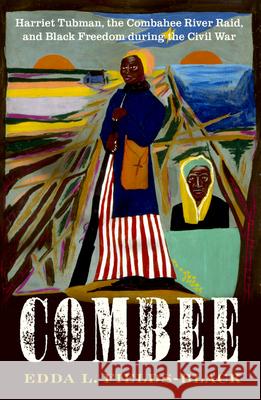COMBEE: Harriet Tubman, the Combahee River Raid, and Black Freedom during the Civil War » książka
topmenu
COMBEE: Harriet Tubman, the Combahee River Raid, and Black Freedom during the Civil War
ISBN-13: 9780197552797 / Angielski / Twarda / 2024 / 368 str.
COMBEE: Harriet Tubman, the Combahee River Raid, and Black Freedom during the Civil War
ISBN-13: 9780197552797 / Angielski / Twarda / 2024 / 368 str.
cena 130,77
(netto: 124,54 VAT: 5%)
Najniższa cena z 30 dni: 129,75
(netto: 124,54 VAT: 5%)
Najniższa cena z 30 dni: 129,75
Termin realizacji zamówienia:
ok. 30 dni roboczych
Bez gwarancji dostawy przed świętami
ok. 30 dni roboczych
Bez gwarancji dostawy przed świętami
Darmowa dostawa!
Kategorie:
Kategorie BISAC:
Wydawca:
Oxford University Press Inc
Język:
Angielski
ISBN-13:
9780197552797
Rok wydania:
2024
Ilość stron:
368
Oprawa:
Twarda
Dodatkowe informacje:
Bibliografia











